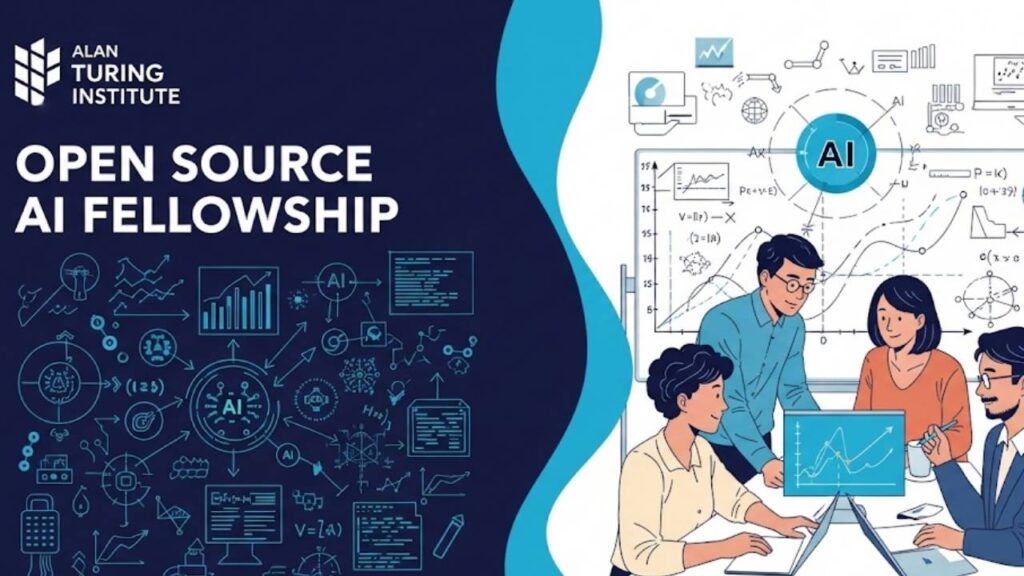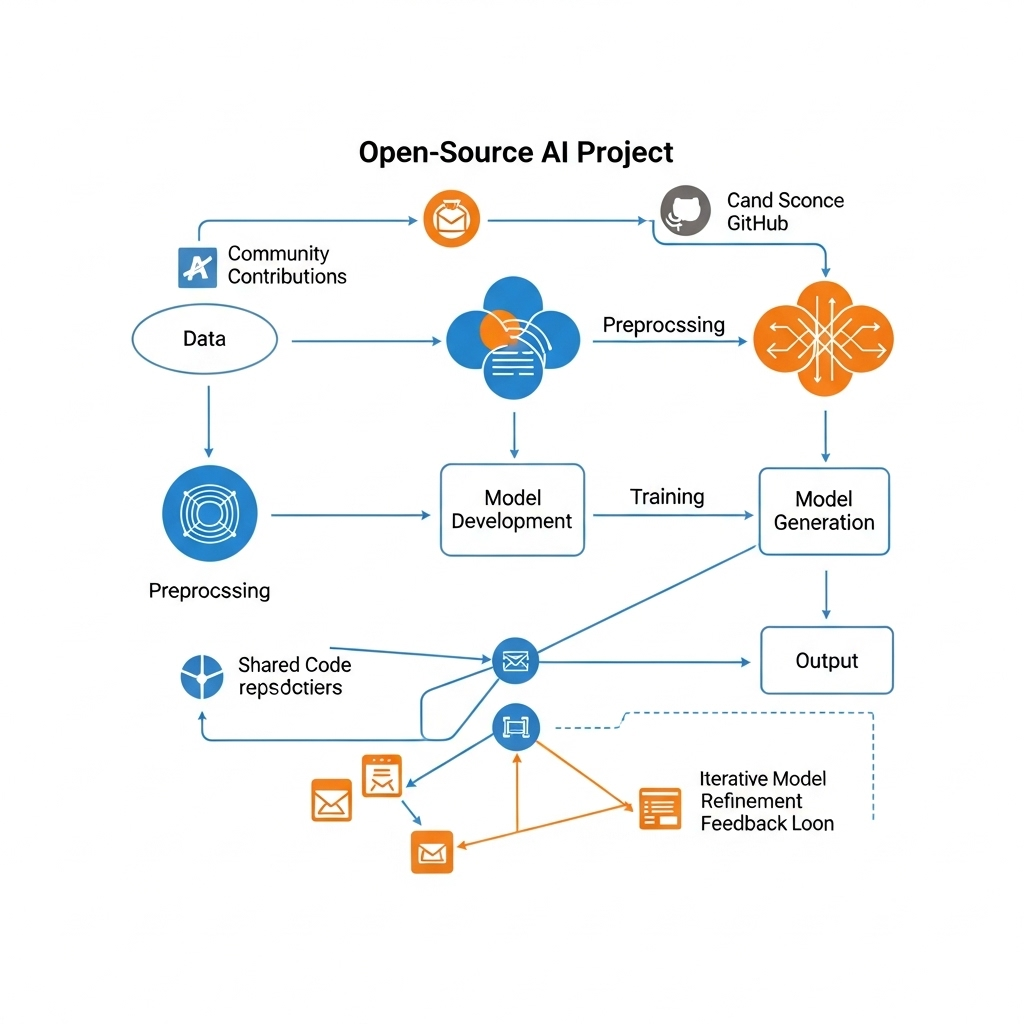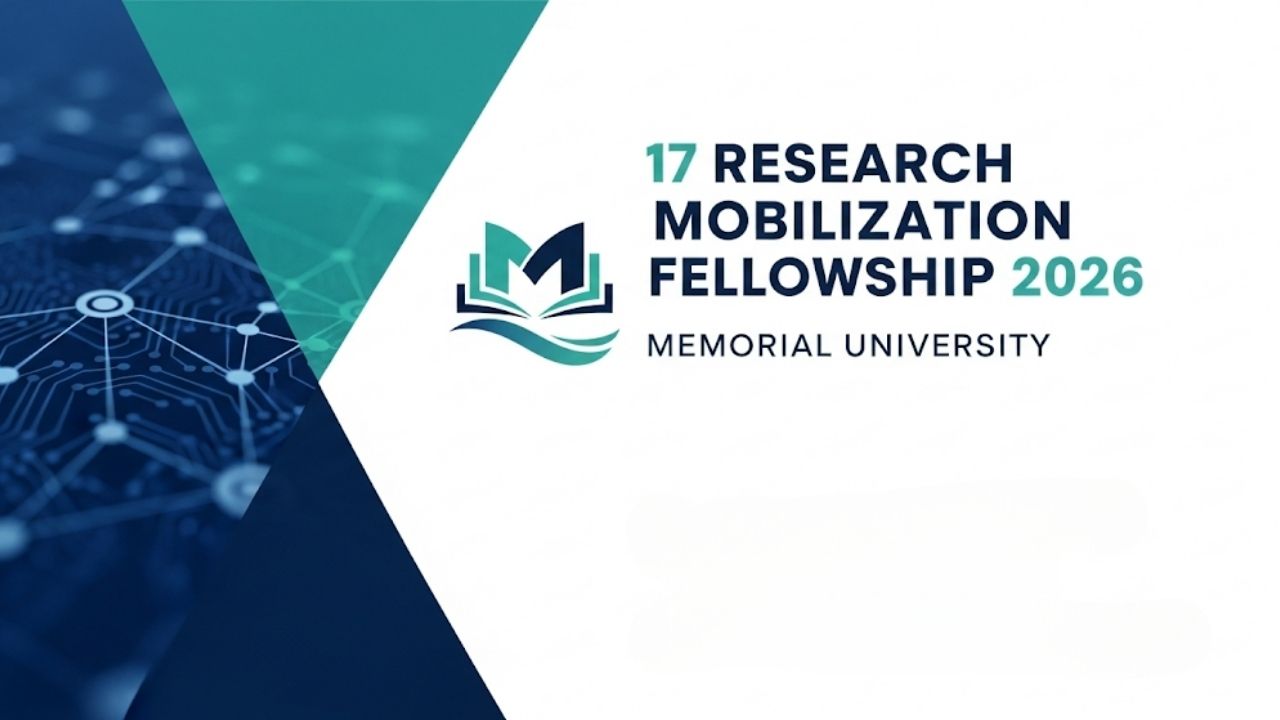Are you an AI expert with a passion for public good? Do you dream of applying your cutting-edge skills to real-world challenges that impact society? The Open Source AI Fellowship 2025 at Alan Turing Institute offers an unparalleled opportunity to do just that. This guide will walk you through everything you need to know to successfully navigate the application process and potentially join a cohort of brilliant minds shaping the future of open-source AI for the UK public sector.

The landscape of artificial intelligence is evolving at an astonishing pace, and with it, the potential to revolutionize public services. The Open Source AI Fellowship 2025 at Alan Turing Institute is a groundbreaking initiative designed to harness the power of top-tier AI talent for the benefit of the UK government and its citizens. This isn’t just about theory; it’s about building tangible, open-source AI tools that can boost productivity, improve decision-making, and deliver better public services. If you’re ready to make a significant, real-world impact, this fellowship could be your next big step.
Open Source AI Fellowship 2025
| Key Fact | Detail/Statistic |
| Duration | 12 months, GOV.UK |
| Start Date | January 2026 |
| Funding Partner | Meta (grant to the Alan Turing Institute) |
| Host Institution | The Alan Turing Institute, with fellows embedded within the UK’s Department for Science, Innovation and Technology (DSIT)’s Incubator for AI, The Alan Turing Institute |
| Key Focus | Building open-source AI tools to improve public services and unlock productivity gains |
Why the Open Source AI Fellowship? Making a Tangible Difference
In my experience advising aspiring AI professionals, one common desire is to see their work translate into meaningful societal benefit. This fellowship directly addresses that desire. It’s not just about theoretical research; it’s about building and deploying AI solutions that tackle real-world problems, from speeding up planning approvals to enhancing national security. The emphasis on open-source AI is particularly exciting. This means the tools and models developed will be freely accessible, fostering transparency, collaboration, and wider public benefit. Imagine contributing to a project that could halve call center response times for citizens seeking advice, as seen with “Caddy,” an AI assistant co-developed with Citizens Advice, now being used by the Cabinet Office [WiredGov, Sky News]. That’s the kind of impact this fellowship aims for.
The Power of Open Source in Public Services
The move towards open-source AI in government is a strategic one. It promises to reduce costs for taxpayers by minimizing reliance on proprietary software and fosters a more secure and adaptable digital infrastructure. Joel Kaplan, Chief Global Affairs Officer at Meta, highlights that “open-source AI models are helping researchers and developers make major scientific and medical breakthroughs, and they have the potential to transform the delivery of public services too” [Sparklex Technologies]. This fellowship is designed to bring that potential to fruition within the UK government.
Unpacking the Fellowship: What to Expect
The Open Source AI Fellowship is a 12-month program that places top AI experts directly into UK government departments. You’ll be part of DSIT’s Incubator for AI, a team dedicated to translating innovative AI ideas into operational systems. This means you’ll be working hands-on with real government data and challenges, often utilizing powerful open-source models like Meta’s Llama 3.5 [GOV.UK].
Potential Project Areas
While specific projects will be determined in collaboration with government departments, the scope is broad and impactful. Expect to work on areas such as:
- Language Translation for National Security: Developing secure, offline AI systems for processing sensitive documents, ensuring data never leaves secure government environments [WiredGov].
- Accelerating Planning Approvals: Utilizing construction planning data to speed up bureaucratic processes and facilitate housing development [GOV.UK].
- Enhancing “Humphrey”: Contributing to an existing suite of AI tools that assist civil servants with tasks like summarizing documents, taking notes, and collating consultation responses [Sparklex Technologies].
- Boosting Public Sector Productivity: Identifying and developing new AI applications that can lead to significant efficiency gains across various government functions. The government anticipates unlocking up to £45 billion in productivity gains across the public sector through such initiatives [Digit.fyi].

Eligibility: Are You the Right Fit?
The Alan Turing Institute emphasizes a diverse range of backgrounds for its fellowships. While specific requirements for the Open Source AI Fellowship 2025 will be detailed in the official call, previous Turing fellowships and similar programs offer valuable insights into the profile of a successful applicant. Generally, they look for:
- Proven Expertise in AI: This isn’t just about academic knowledge; it’s about practical experience in working with data, programming, and developing AI solutions. Whether you have formal training or are self-taught, demonstrable skills are key [The Alan Turing Institute – Eligibility FAQ].
- Interest in Open Source: A genuine commitment to the principles of open source – collaboration, transparency, and shared development – is crucial.
- Problem-Solving Aptitude: The fellowship focuses on solving real-world challenges, so a strong analytical mindset and the ability to identify and address complex problems are essential.
- Communication and Collaboration Skills: You’ll be working within government teams, so the ability to communicate technical concepts clearly and collaborate effectively is vital.
- Impact-Driven Mindset: A desire to use AI for public good and a focus on delivering tangible results are highly valued.
It’s important to note that nationality restrictions may not apply, though sessions will likely occur during GMT hours, so international applicants should consider the time difference [The Alan Turing Institute – Eligibility FAQ]. I’ve seen many successful applicants leverage their diverse professional backgrounds, showcasing how their unique experiences can contribute to innovative AI solutions for public service.
The Application Journey: Your Path to Success
While the official application portal for the Open Source AI Fellowship 2025 at Alan Turing Institute will open shortly, it’s never too early to start preparing. Here’s a general roadmap, drawing on insights from similar high-caliber fellowship applications:
1. Stay Informed and Register Your Interest
The most critical first step is to stay updated directly from the source. Keep a close eye on the official Alan Turing Institute website and the GOV.UK announcements. Many fellowships offer a “register interest” option, which ensures you receive direct notifications when applications open and details are released. This will be your primary source for the precise application deadlines and requirements.
2. Craft a Compelling CV/Resume
Your CV or resume should clearly highlight your AI expertise, particularly any experience with open-source projects or contributions. Quantify your achievements whenever possible (e.g., “developed an AI model that improved efficiency by X%”). Tailor it specifically to the fellowship’s focus on public service and open-source AI.
3. Develop a Powerful Statement of Purpose/Motivation Letter
This is where you tell your story. Articulate why you are passionate about open-source AI for public good. Connect your past experiences and skills to the fellowship’s objectives.
- Show, Don’t Just Tell: Instead of saying “I am a great problem-solver,” describe a specific instance where you tackled a complex AI challenge and the outcome.
- Align with the Mission: Explicitly state how your goals align with the fellowship’s mission of improving public services through open-source AI.
- Demonstrate Understanding: Show that you understand the challenges and opportunities of applying AI within a government context.
- Highlight Open Source Contributions: If you’ve contributed to open-source projects, this is the place to showcase your commitment and experience.
4. Prepare for Technical Assessments and Interviews
Given the nature of the fellowship, expect rigorous technical assessments and interviews. These may involve coding challenges, case studies related to public sector AI problems, and in-depth discussions about your technical skills and experience. Be ready to discuss your approach to ethical AI and your understanding of responsible innovation.
5. Secure Strong References
Identify individuals who can speak to your technical prowess, collaborative spirit, and commitment to impactful work. Choose referees who know your work well and can provide specific examples of your capabilities.

Social Media Spotlight
The Alan Turing Institute and related government bodies often share updates and insights on social media. Keeping an eye on their platforms can provide valuable context and real-time information.
This post from the Department for Science, Innovation and Technology highlights the core purpose of the fellowship:
A Comprehensive Guide to the Royal Society Wolfson Visiting Fellowship 2025 (Term 2)
Charting Your Path to Excellence: University of Cambridge Research Fellowships 2026
FAQs
Q1:What is the Alan Turing Institute?
The Alan Turing Institute is the UK’s national institute for data science and artificial intelligence. It brings together experts from across the UK to undertake world-class research, apply it to real-world problems, and train the next generation of leaders [The Alan Turing Institute].
Q2:What is “open source” AI?
Open-source AI refers to AI models, frameworks, and tools whose source code is publicly available, allowing anyone to inspect, modify, and distribute them. This fosters transparency, collaboration, and rapid innovation, often leading to more robust and secure solutions [The Alan Turing Institute – Open-source software: why it matters and how to get involved].
Q3:Is this fellowship paid?
While the official call details are pending, similar high-caliber fellowships at the Alan Turing Institute are typically fully funded, covering living expenses and providing a stipend. The initiative for this fellowship is backed by a $1 million grant from Meta [GOV.UK].
Q4:Can international candidates apply?
Based on information from previous Turing fellowships, there are generally no nationality restrictions, though applicants should be mindful of time zone differences for virtual engagements [The Alan Turing Institute – Eligibility FAQ].
Q5:What kind of impact can I expect to make?
Fellows will work on developing tangible AI tools that directly address public sector challenges. This can lead to improved efficiency, cost savings, enhanced public safety, and better service delivery for citizens. Examples include optimizing public service response times and streamlining government processes [Sparklex Technologies].










